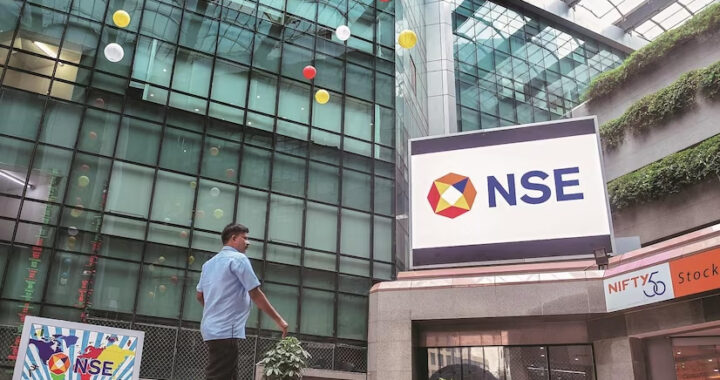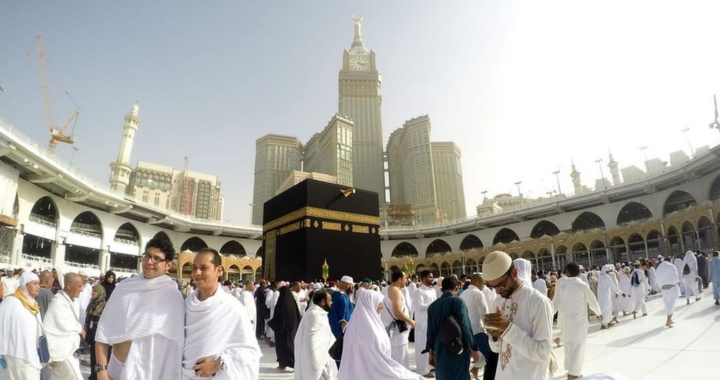Cultural Festivals as a Platform for Social Change
-
Table of Contents
Cultural Festivals: Uniting Communities, Igniting Change.
Cultural festivals have long served as platforms for social change, providing a space for communities to come together, celebrate their heritage, and address important social issues. These festivals offer a unique opportunity for individuals from diverse backgrounds to engage in dialogue, challenge stereotypes, and foster understanding. By showcasing various cultural traditions, festivals promote inclusivity, respect, and appreciation for different perspectives, ultimately contributing to positive social transformation.
The Role of Cultural Festivals in Promoting Social Equality
Cultural festivals have long been celebrated as a way to showcase the diversity and richness of different cultures. However, these festivals also play a crucial role in promoting social equality. By bringing people from different backgrounds together, cultural festivals create a platform for dialogue, understanding, and ultimately, social change.
One of the ways in which cultural festivals promote social equality is by breaking down barriers and fostering inclusivity. These festivals provide a space where people from all walks of life can come together and celebrate their shared humanity. Regardless of one’s race, religion, or socioeconomic status, everyone is welcome to participate and contribute to the festivities. This inclusivity sends a powerful message that all individuals deserve to be treated with respect and dignity, regardless of their background.
Moreover, cultural festivals provide an opportunity for marginalized communities to have their voices heard. Often, these communities face discrimination and are underrepresented in mainstream society. However, through cultural festivals, they can showcase their traditions, art, and music, and gain visibility and recognition. This visibility not only helps to preserve their cultural heritage but also challenges stereotypes and misconceptions that may exist about their community. By giving marginalized communities a platform, cultural festivals contribute to a more inclusive and equal society.
In addition to promoting inclusivity and giving a voice to marginalized communities, cultural festivals also foster understanding and empathy among different groups. When people from diverse backgrounds come together to celebrate a culture that may be unfamiliar to them, they have the opportunity to learn and appreciate the customs, traditions, and values of others. This exposure to different cultures helps to break down stereotypes and prejudices, as individuals realize that despite their differences, they share common aspirations and experiences. This increased understanding and empathy are essential for building a more harmonious and equal society.
Furthermore, cultural festivals often address social issues and promote social change. Many festivals incorporate themes that highlight important social issues such as gender equality, environmental sustainability, or human rights. Through art, performances, and discussions, these festivals raise awareness and encourage dialogue around these issues. By engaging festival-goers in conversations about social change, cultural festivals inspire individuals to take action and make a difference in their communities. This collective effort towards social change is a powerful force that can lead to tangible improvements in society.
In conclusion, cultural festivals serve as a platform for social change by promoting inclusivity, giving a voice to marginalized communities, fostering understanding and empathy, and addressing social issues. These festivals create a space where people from different backgrounds can come together, celebrate their shared humanity, and work towards a more equal society. By participating in cultural festivals, individuals have the opportunity to challenge stereotypes, learn from one another, and contribute to positive social change. As we continue to celebrate and support cultural festivals, we must recognize their potential to shape a more inclusive and equal world.
Cultural Festivals as Catalysts for Community Empowerment
Cultural festivals have long been celebrated as vibrant and joyous events that bring communities together. However, beyond their entertainment value, these festivals also serve as powerful platforms for social change and community empowerment. By showcasing diverse cultures, promoting inclusivity, and fostering dialogue, cultural festivals can act as catalysts for positive transformation within society.
One of the key ways in which cultural festivals empower communities is by celebrating and preserving diverse cultures. These festivals provide a space for different ethnic groups to showcase their traditions, music, dance, and cuisine. By doing so, they not only promote cultural understanding and appreciation but also help to preserve and pass down cultural heritage to future generations. This celebration of diversity helps to break down barriers and foster a sense of unity among community members.
Moreover, cultural festivals serve as platforms for promoting inclusivity and social cohesion. They create opportunities for individuals from different backgrounds to come together and interact in a positive and inclusive environment. By providing a space for people to learn about and engage with cultures different from their own, these festivals promote tolerance, respect, and understanding. This, in turn, helps to build stronger and more cohesive communities, where diversity is celebrated rather than feared.
In addition to promoting cultural understanding and inclusivity, cultural festivals also foster dialogue on important social issues. Many festivals incorporate educational workshops, panel discussions, and performances that address topics such as social justice, human rights, and environmental sustainability. By providing a platform for these discussions, festivals encourage community members to engage in meaningful conversations and reflect on the challenges facing society. This dialogue can lead to increased awareness, empathy, and ultimately, social change.
Furthermore, cultural festivals often provide opportunities for local artists, artisans, and entrepreneurs to showcase their talents and products. This not only supports the local economy but also empowers individuals and communities by providing them with a platform to share their creativity and skills. By highlighting local talent, cultural festivals contribute to the growth and development of the community, fostering a sense of pride and empowerment among its members.
It is important to note that cultural festivals alone cannot bring about social change. However, they can act as catalysts for change by creating a space for dialogue, promoting inclusivity, and celebrating diversity. By bringing people together and providing opportunities for engagement and reflection, these festivals inspire individuals to take action and work towards a more equitable and just society.
In conclusion, cultural festivals have the power to go beyond mere entertainment and serve as platforms for social change and community empowerment. By celebrating diverse cultures, promoting inclusivity, fostering dialogue, and supporting local talent, these festivals contribute to the growth and development of communities. They create spaces where individuals can come together, learn from one another, and work towards a more inclusive and equitable society. Cultural festivals are not just celebrations; they are catalysts for positive transformation.
Exploring Cultural Festivals as Tools for Cultural Preservation and Revitalization
Cultural festivals have long been celebrated as vibrant and lively events that showcase the rich diversity of different communities. Beyond their entertainment value, these festivals also serve as powerful platforms for social change, particularly in the realm of cultural preservation and revitalization. By exploring the significance of cultural festivals as tools for preserving and revitalizing traditions, we can gain a deeper understanding of their impact on society.
One of the primary ways in which cultural festivals contribute to cultural preservation is by providing a space for communities to showcase their unique traditions and customs. These festivals often feature performances, exhibitions, and workshops that allow participants to share their cultural heritage with others. By doing so, they not only preserve their traditions but also create opportunities for intercultural dialogue and understanding.
Moreover, cultural festivals serve as a catalyst for revitalizing endangered or marginalized cultural practices. In many communities, traditional customs and practices are at risk of being lost due to globalization, urbanization, and other factors. However, cultural festivals provide a platform for these practices to be revived and celebrated. Through performances, demonstrations, and interactive experiences, festival-goers can learn about and engage with these endangered traditions, thus ensuring their survival for future generations.
In addition to preserving and revitalizing cultural practices, cultural festivals also play a crucial role in fostering a sense of pride and identity within communities. By celebrating their cultural heritage, individuals are able to connect with their roots and develop a stronger sense of belonging. This sense of pride and identity can have a profound impact on social change, as it empowers individuals to take ownership of their cultural heritage and advocate for its preservation.
Furthermore, cultural festivals have the power to challenge stereotypes and promote inclusivity. By showcasing the diversity within a community, these festivals challenge preconceived notions and promote a more inclusive society. Through performances, exhibitions, and cultural exchanges, festival-goers are exposed to different perspectives and experiences, fostering empathy and understanding. This increased awareness can lead to a more inclusive and accepting society, where cultural differences are celebrated rather than stigmatized.
It is important to note that cultural festivals are not just limited to showcasing traditional practices. They also provide a platform for contemporary expressions of culture, such as music, art, and fashion. By incorporating modern elements into these festivals, organizers are able to attract a wider audience and engage younger generations. This fusion of tradition and innovation not only ensures the relevance of cultural festivals but also encourages the evolution of cultural practices in a changing world.
In conclusion, cultural festivals are powerful tools for social change, particularly in the realm of cultural preservation and revitalization. By providing a platform for communities to showcase their traditions, these festivals contribute to the preservation of cultural heritage. They also serve as a catalyst for revitalizing endangered practices and fostering a sense of pride and identity within communities. Moreover, cultural festivals challenge stereotypes, promote inclusivity, and encourage the evolution of cultural practices. As we continue to celebrate and support cultural festivals, we can harness their potential to create a more diverse, inclusive, and culturally rich society.Cultural festivals serve as a platform for social change by promoting cultural diversity, fostering understanding and tolerance among different communities, and addressing social issues through artistic expressions. These festivals provide opportunities for individuals to learn about and appreciate various cultures, challenging stereotypes and prejudices. By showcasing different traditions, customs, and art forms, cultural festivals encourage dialogue, collaboration, and mutual respect, ultimately contributing to positive social transformation.

 Latest Updates on NSE Unlisted Share Price: What You Need to Know
Latest Updates on NSE Unlisted Share Price: What You Need to Know  Best Places for Currency Exchange in Kolkata: A Complete Guide
Best Places for Currency Exchange in Kolkata: A Complete Guide  7000 Puffs Crystal Prime: Your Go-To Manual for the Best Vaping Experience
7000 Puffs Crystal Prime: Your Go-To Manual for the Best Vaping Experience  Cat In The Chrysalis Spoiler – Synopsis, Character Development, Themes And Much More
Cat In The Chrysalis Spoiler – Synopsis, Character Development, Themes And Much More  Innovative Pain Relief Techniques: What’s New?
Innovative Pain Relief Techniques: What’s New?  6 Tips For Choosing Umrah Packages From UK
6 Tips For Choosing Umrah Packages From UK  Exploring London’s Best Butcher Shops
Exploring London’s Best Butcher Shops  Enhance Your Shop Appeal with Sydney’s Best Carpentry Services
Enhance Your Shop Appeal with Sydney’s Best Carpentry Services  A Detailed Look at the Features of the LEGO Technic Mars Crew Exploration Rover
A Detailed Look at the Features of the LEGO Technic Mars Crew Exploration Rover